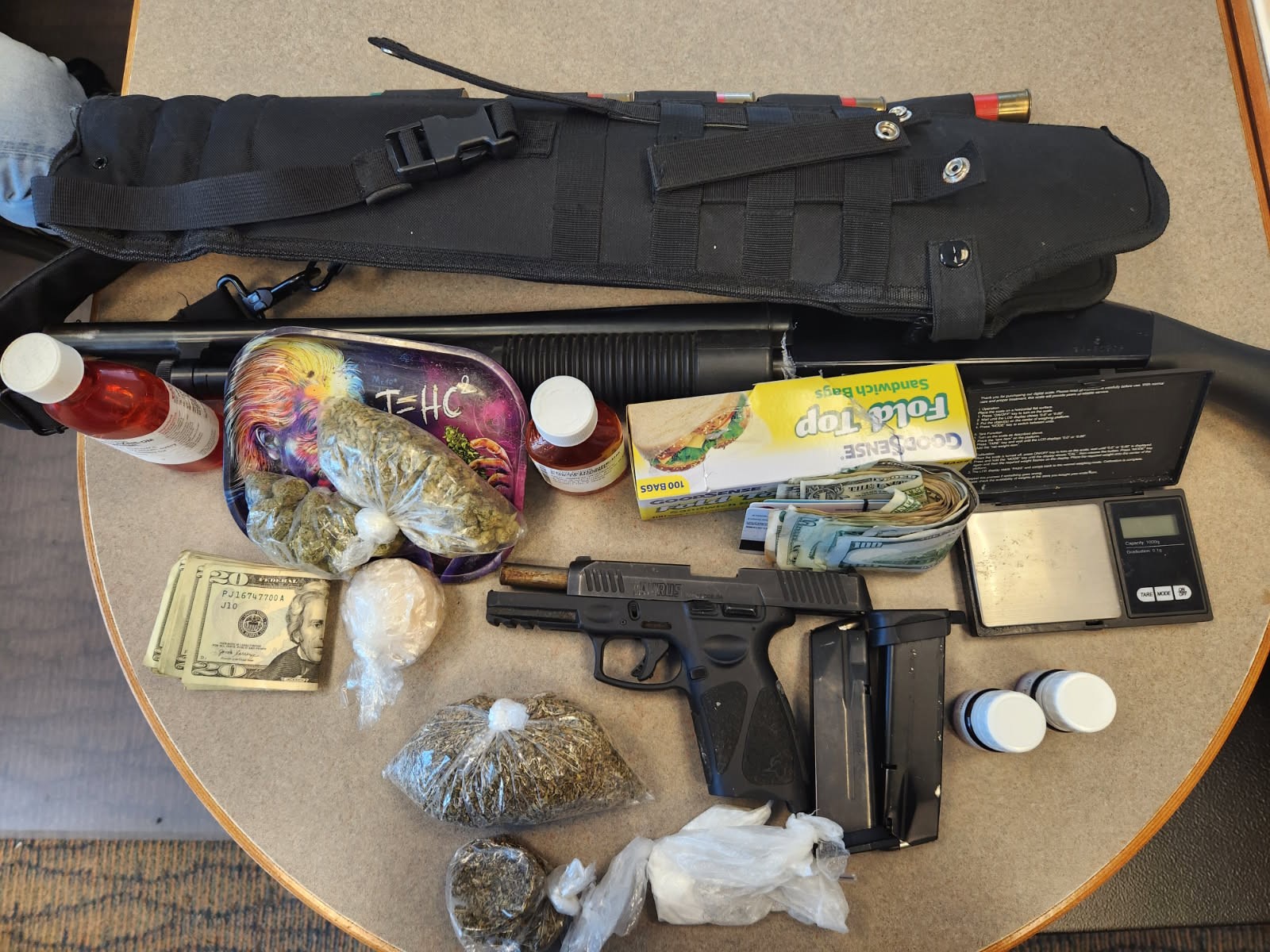Orange LSCPA grad among those fighting the battle on COVID’s front lines
Published 7:15 am Wednesday, January 27, 2021




|
Getting your Trinity Audio player ready...
|
To The Leader
If anyone ever doubted the COVID-19 pandemic wasn’t real, they need only walk a day in the shoes of the nursing grads from Lamar State College Port Arthur.
“It’s horrible. The whole hospitals are nothing but COVID patients,” James Wade, an Orange resident working as a travel nurse in two hospitals in El Paso, said.
Trending
In El Paso, Wade is splitting time at two hospitals operated by The Hospitals of Providence system. The Sierra campus is near downtown, the Transmountain Campus is near the New Mexico border.
“I definitely couldn’t have been prepared for this if it wasn’t for the instructors at Lamar State College Port Arthur and what I learned when I was there,” Wade said.
“The thing I liked most was how personable the instructors were,” he said. “You’re not just a number to them. They actually care about each student.”
COVID-19 is killing more Americans per day than did World War II. Texas is averaging about 20,000 new cases per day and 250 new deaths.
And Lamar State College Port Arthur is putting boots on the ground in the most important fight since WWII.
Among the others on the COVID-19 front lines along with Wade are fellow 2019 LSCPA nursing grads Daniel Garcia, who attended high school in Port Arthur, and Cameron Fontenot from Sour Lake.
Trending
“When I started out working in the COVID ICU [intensive care unit], it was hard,” said Garcia, who is currently a travel nurse working at Houston’s Memorial Hermann Hospital.
“At the beginning, the patients were just the elderly. But now you see younger and younger patients coming in. I see patients the same age as my mother. It’s scary to think that could be my mother in that bed fighting for her life.
“I’ve seen healthcare workers on TV and the internet say the virus is all political and not real. They’re not working with COVID patients. Unfortunately, sometimes it takes people having someone close to them get COVID to understand it is real.
“Yeah, COVID is real.”
The trio of Wade, Garcia and Fontenot all arrived at LSCPA from different backgrounds, completed their educational requirements and immediately passed their licensing exams to become Registered Nurses. They graduated with different long-term goals.
Garcia was already a Licensed Vocational Nurse and working as staffing coordinator at Mid-Jefferson Extended Care Hospital in Nederland when he enrolled at LSCPA. Wade wants to continue his education and get a bachelor’s degree in nursing. Fontenot earned a four-year bachelor of science degree from Lamar University in Beaumont before coming to LSCPA. He’s pursuing a master’s in nursing.
Garcia and Wade worked at Beaumont’s Baptist Hospital after being certified as RNs. They are both currently on leave from their year-round jobs to work as contracted travel nurses.
Travel nurses are used in hospitals around the country to help where the demand is greatest. According to Fontenot, travel nurses typically sign 13-week contracts to work six days a week, 12 hours a day, earning as much as $10,000 per week.
Fontenot, 26, is staying home, at his job as an RN in the Cardiovascular ICU at Christus St. Elizabeth Hospital. He works 12-hour shifts, from 7 p.m. to 7 a.m. on a rotating schedule of five days on, two off one week and five days off and two on the next.
“Treatment varies from patient to patient,” Fontenot said. “A lot of the COVID patients’ problems have to do with oxygen and oxygen delivery. The oxygen doesn’t move like it regularly would. The body is so dependent on oxygen, organs shut down.
“The name of the game is to keep their blood thin [to avoid clotting] and give them high concentrations of oxygen until they burn off the illness.”
Fontenot said about 10 percent of St. Elizabeth’s 450 beds are currently occupied by COVID patients. He says first the regular ICU filled up, then an entire floor was filled by more COVID patients, then the neurology ICU filled up. Then they dedicated another floor to take on more COVID patients.
“The medical trauma ICU that takes care of wrecks and gunshots took on the COVID overflow ICU,” he said. “We [Cardiovascular ICU] were the overflow of the overflow. Of course, during [this pandemic] people are still having heart attacks and blockages in their hearts. We went from having one patient per nurse to two patients per nurse and sometimes three.”
Garcia says Memorial Hermann is about four times the size of Beaumont’s Baptist.
“Even here, it’s full. Even though this hospital is full, people with COVID are still waiting on a room. Literally, if you get one patient stable or someone unfortunately passes away, they already have someone ready for the room,” he said.
Fontenot agrees with Wade that his days at LSCPA were a real plus.
“I feel like the education I got at Lamar State College Port Arthur really prepared me for this job,” Fontenot said. “I enjoyed the program and was taught by good quality instructors. And the cost is substantially less than at a four-year college.
“I’m even looking into teaching critical care there part-time.”
For more information on nursing programs at Lamar State College Port Arthur, contact the Allied Health Department at 409-984-6365 or go online to: https://www.lamarpa.edu/Degrees-Certificates/Technical-Programs/Allied-Health .
In addition to nursing, the department offers pathways to certification in Surgical Technology or Substance Abuse Counseling.








